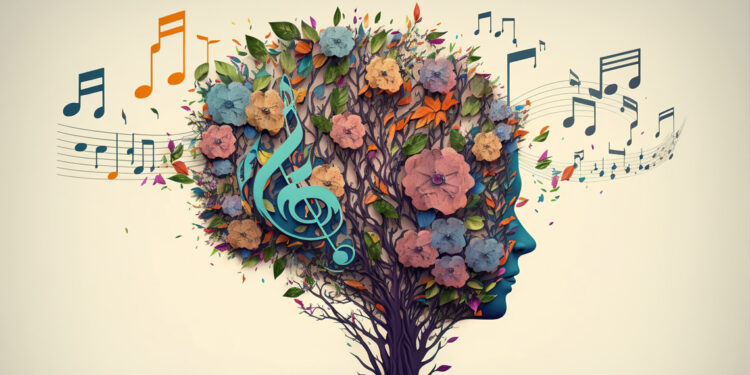Scientists use AI and unconscious brain activity to identify hit songs with shockingly high accuracy
by Eric W. DolanJuly 17, 2023
in Artificial Intelligence, Cognitive Science, Neuroimaging

A team of scientists recently found they could predict which songs would become popular hits by measuring people’s brain activity while they listened to music and then analyzing the data using artificial intelligence. The models based on neurophysiologic measures provided significantly more accurate predictions compared to relying on people’s self-reported preferences. Their new study has been published in Frontiers in Artificial Intelligence.
Streaming services like Spotify and Pandora have invested in technologies to identify and introduce new music tailored to subscribers’ existing playlists. However, less than 4% of new songs become hits. Various methods have been used to predict hit music, including analyzing lyrics and social media mentions. But the predictive accuracy of these methods has been low.
The researchers behind the new study wanted to explore whether measuring neurophysiologic responses to music could help predict hit songs. Music has a profound effect on people’s emotions, and it activates multiple brain regions associated with emotion processing and long-term memory retrieval. The researchers believed that measuring peripheral neurophysiologic responses, such as cardiac signals associated with attention and emotional resonance, could capture the neural circuits involved in emotional responses to music.
“I had a meeting with a researcher at a music streaming service and he told me that 24,000 new songs are released daily worldwide and how his team struggles to determine which ones are likely to be hits,” explained study author Paul J. Zak, a professor at Claremont Graduate University, director of the Center for Neuroeconomics Studies, and author of “Immersion: The Science of the Extraordinary and the Source of Happiness.”
“My research had identified a neural pathway I have named ‘Immersion’ that appears to determine the value that the brain assigns to social-emotional experiences and I wondered if this neural activity could identify hit songs when they were first released. The streaming service sent me a set of newly released songs and the number of streams 3 months later.”
The study involved 33 participants who listened to 24 recent songs chosen by a streaming service. The participants’ neurophysiologic responses were measured using a commercial platform that captured signals associated with attention and emotional resonance. The researchers derived three variables from the neurophysiologic data: average immersion, peak immersion (the highest immersion moments during the song), and retreat (the lowest 20% of immersion moments).
Participants also provided ratings of their liking of each song, whether they would replay the song, recommend it to others, familiarity with the song, and whether they found it offensive. Market data, such as the number of song streams and online likes, were obtained from the streaming service.

 .
.

